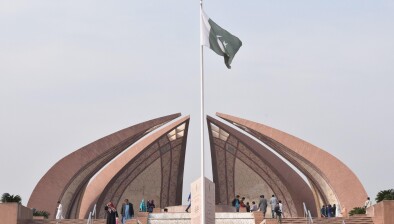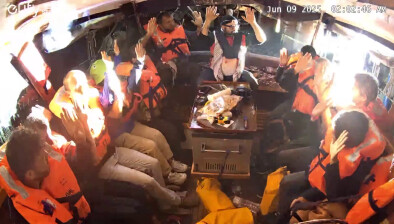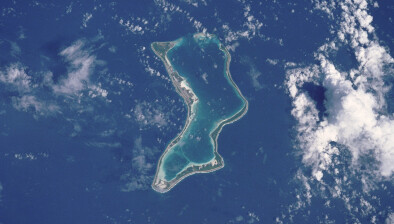Oireachtas committee calls for extra safeguards in ‘triple lock’ reform bill

Credit: Irish Defence Forces / Flickr, CC BY 2.0
Legislation allowing members of the Irish Defence Forces to be deployed overseas without a UN mandate requires additional safeguards, an Oireachtas committee has said.
The joint committee on defence and national security has made 27 recommendations following pre-legislative scrutiny of the general scheme of the Defence (Amendment) Bill 2025.
The bill proposes to revise and consolidate the current legislation relating to the despatch of members of the Irish Defence Forces for service outside the State, including removing the requirement for a United Nations mandate — part of the so-called “triple lock”.
It further proposes to set out governing principles which will apply to any future Defence Forces deployments, and revises the purposes for which members of the Defence Forces may be despatched outside the State.
The bill also proposes to give effect to recommendations pertaining to suspension and associated provisions contained within Peter Ward SC’s report concerning the management of members of the Defence Forces charged with or convicted of serious criminal offences.
Rose Conway-Walsh, chair of the committee, said: “The provisions of this draft legislation are highly significant, particularly in the legislative framework for the overseas deployment of Irish troops and internal human resource management matters within the Defence Forces. They merit careful, in-depth and informed examination.
“The committee has endeavoured within the time constraints of the pre-legislative scrutiny process to give all the bill’s implications due consideration and to engage with as broad a range of relevant stakeholders as time would allow.”
While the committee does not explicitly recommend the removal of the triple lock, it has recommended a number of safeguards to be introduced in the event that the requirement for a UN mandate is removed.
These include a requirement for a formal legal review by an independent body in advance of any deployment of Irish troops with an international force, the findings of which should be made available to the Oireachtas and to the public.
These legal reviews should be repeated at regular intervals during a particular mission’s lifecycle, the committee has said.
The report also recommends an enhanced role for the Oireachtas generally and the committee on defence and national security specifically in both the approval and scrutiny of Irish overseas deployments with international forces.
This, it says, should include a regular renewal of mission mandates, requiring both government and Dáil approval, as well as a formal annual review by the committee on defence and national security of all Irish deployments with international forces.
The committee also proposes that the purposes for which Irish personnel can be deployed with an international force should be defined in law as “peace keeping, peace enforcement or duties of a police character”.
In relation to the bill’s proposal to increase from 12 to 50 the number of Defence Forces personnel that can be deployed with an international force with only government approval, the committee has recommended safeguards and requested greater clarity.
The committee has recommended that any future deployments of Irish troops with international forces are consistent with the State’s legal obligations in relation to the use of cluster munitions, anti-personnel mines and nuclear weapons, as well as in relation to the International Criminal Court.
The committee has also recommended greater definitional clarity in relation to several key provisions of the bill, including the use of phrases such as “strengthening international security” and “conflict prevention”.
More generally, the committee has recommended that Ireland continue its leading role in UN reform as well as explore options to support other multilateral institutions like the International Criminal Court and the International Court of Justice.
Finally, the committee has made a number of recommendations in relation to the bill’s proposed human resource management updates for the Defence Forces to ensure that these provisions are measured, fair and respect the principles of natural justice.
Ms Conway-Walsh said: “One area that was confirmed and agreed by all witnesses were the current rules for deployment of unlimited numbers of Defence Force members.
“These include secondments to international organisations; participating in training; participating in exchanges; undertaking visits or reconnaissance; fact-finding missions; and undertaking humanitarian tasks in response to actual or potential disasters or emergencies.
“It is therefore important to note that a UN mandate is not required in any of the above-mentioned scenarios.
“The importance of Ireland’s military neutrality to the people of Ireland was accepted by all witnesses and members.
“Opposition members and several witnesses and hundreds of submissions received from the Irish public were deeply concerned that this proposed legislation would present a threat to our neutrality, while government members and other witnesses stated it would have no impact.”









